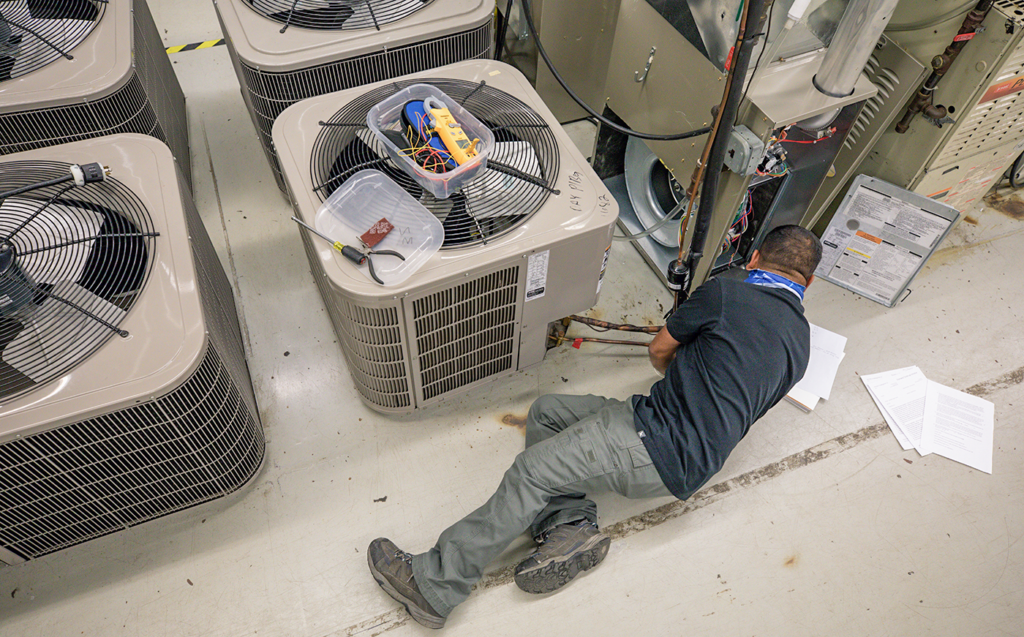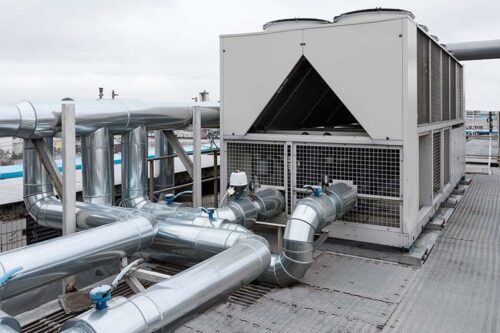Your Overview to Picking the Right HVAC System for Your Needs
Selecting a proper A/c system is a vital decision that can significantly influence convenience and energy performance in your home. In addition, comprehending the different kinds of systems offered and their energy rankings can assist guide your selection.
Comprehending HVAC System Kind
When choosing a HVAC system, it is important to recognize the various kinds offered to fulfill your certain needs. The main categories of cooling and heating systems include main air conditioning systems, ductless mini-split systems, warm pumps, and heater systems.
Central air systems are designed to cool numerous spaces making use of ductwork to distribute conditioned air. They are excellent for larger homes calling for consistent temperature level control. Ductless mini-split systems, on the various other hand, offer adaptability and efficiency, as they enable zoning capabilities, allowing specific room temperature law without the need for ductwork.
Heat pumps operate by transferring warm rather than producing it, making them an energy-efficient alternative for both home heating and air conditioning. Alternatively, heater systems utilize combustion to produce warm, using either electricity, oil, or gas.
Each system has distinct advantages and considerations, consisting of installment needs, upkeep, and general expenses. Comprehending these types will aid home owners make educated choices based on their particular needs, climate, and spending plan restraints, eventually making sure ideal comfort and performance.
Reviewing Power Effectiveness
Energy performance is an essential aspect in the choice of a heating and cooling system, as it straight affects both utility prices and environmental sustainability. When evaluating energy efficiency, numerous metrics and scores can assist lead your choice. The Seasonal Power Effectiveness Proportion (SEER) and the Home Heating Seasonal Performance Variable (HSPF) are crucial indications for cooling systems, representing their effectiveness over a typical air conditioning and heating period, respectively. Greater SEER and HSPF ratings show much better power performance, bring about minimized power consumption.
Additionally, search for systems that have actually earned the ENERGY STAR tag. This qualification represents that the tools fulfills strict energy performance standards set by the U.S. Epa. Think about the system's variable-speed innovation, which permits for more effective procedure by readjusting the result to match demand, even more improving power financial savings.
In addition, proper insulation and duct sealing can substantially affect the system's general performance. In recap, picking an energy-efficient HVAC system not only lowers your energy bills but also contributes to a much more sustainable atmosphere, making it a vital factor to consider in your investing in procedure.
Assessing System Dimension
Picking the proper dimension for an a/c system is critical to making certain optimum efficiency and performance. A small system may struggle to maintain desired temperature levels, causing boosted deterioration, higher energy consumption, and lessened convenience. On the other hand, a large system can result in rapid biking, which not just triggers inefficiencies but additionally impacts humidity control and air quality.
To analyze the excellent sizing, it is necessary to carry out a load calculation, which takes into consideration aspects such as the square footage of the room, insulation degrees, window dimensions, and regional climate problems - hvac. This estimation assists determine the British Thermal Devices (BTU) required for cooling and heating. In addition, it is crucial to account for details requirements, such as the variety of residents and the presence of heat-generating home appliances

Installment Prices and Budget Plan
A detailed understanding of setup expenses is necessary for homeowners and businesses considering a brand-new cooling and heating system. The complete expenditure of installment can differ commonly based on several factors, consisting of the kind of system, the intricacy of setup, and the location of the residential or commercial property. On average, installation prices can vary from $3,000 to $10,000, depending upon the system's size and performance.
When budgeting for a cooling and heating system, it is critical to think about not only the first installment expenses but additionally any type of additional expenditures that might arise, such as ductwork alterations, electric upgrades, or permits. In addition, it is a good idea to obtain numerous quotes from accredited heating and cooling contractors to make certain competitive rates.
House owners should additionally factor in the possible long-lasting financial savings connected with energy-efficient systems. While the upfront expenses might be higher, energy-efficient versions can result in substantial cost savings on energy expenses over time.

Maintenance and Durability Considerations

Correct maintenance includes regular examinations, filter replacements, and cleaning of air ducts and coils (air duct cleaning coquitlam). Overlooking these tasks can cause lowered performance, increased energy costs, and premature system failure. Home owners need to additionally consider the schedule of service contracts, which typically supply scheduled upkeep and top priority service, making certain that the system remains in peak problem
Longevity differs by system kind; as an example, properly maintained central air devices can last 15 to two decades, while heatpump might have a life-span of 10 to 15 years. Picking a system with a solid online reputation for integrity, in addition to buying routine maintenance, can substantially improve the system's toughness. official statement Furthermore, selecting higher-efficiency designs may lead to lasting financial savings on power expenses, balancing the first financial investment gradually.
Final Thought
In final thought, selecting an ideal cooling and heating system requires careful factor to consider of numerous elements, including system kinds, energy efficiency, and dimension. Assessing installation prices and long-lasting upkeep demands is important for ensuring optimum performance and cost-effectiveness. Involving with heating and cooling professionals can give important understandings and tailored referrals that line up with specific home heating and cooling requirements. Ultimately, an educated decision will certainly enhance convenience and efficiency in property environments while making best use of energy financial savings.
Choosing an ideal HVAC system is an important choice that can significantly affect Click Here comfort and power performance in your home.Power efficiency is a vital variable in the option of a Heating and basics cooling system, as it directly affects both energy expenses and ecological sustainability. The Seasonal Power Performance Proportion (SEER) and the Home Heating Seasonal Performance Factor (HSPF) are important signs for air conditioning systems, representing their effectiveness over a normal air conditioning and home heating period, specifically. Choosing a system with a strong track record for dependability, along with spending in routine maintenance, can substantially improve the system's toughness.In final thought, choosing a proper A/c system requires cautious consideration of various factors, including system kinds, power effectiveness, and size.